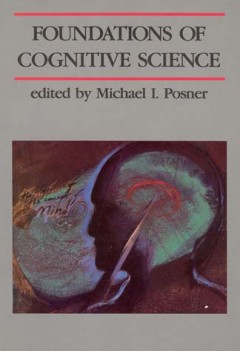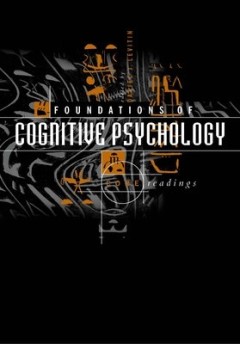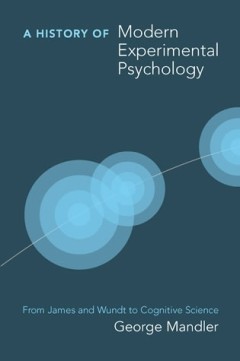Filter by

Timing and Time Perception: Procedures, Measures, & Applications
Timing and Time Perception: Procedures, Measures, and Applications is a one-of-a-kind, collective effort to present the most utilized and known methods on timing and time perception. Specifically, it covers methods and analysis on circadian timing, synchrony perception, reaction/response time, time estimation, and alternative methods for clinical/developmental research. The book includes experi…
- Edition
- -
- ISBN/ISSN
- 9789004280205
- Collation
- 372 hlm; ill., lamp.,
- Series Title
- -
- Call Number
- -

Rethinking Interdisciplinarity across the Social Sciences and Neurosciences
This book offers a provocative account of interdisciplinary research across the neurosciences, social sciences and humanities. Rooting itself in the authors' own experiences, the book establishes a radical agenda for collaboration across these disciplines. This book is open access under a CC-BY license.
- Edition
- -
- ISBN/ISSN
- 978-1-137-40796-2
- Collation
- oer.unej.ac.id
- Series Title
- -
- Call Number
- -

Time Distortions in Mind = Temporal Processing in Clinical Populations
Time Distortions in Mind brings together current research on aspects of temporal processing in clinical populations, in the ultimate hope of elucidating the interdependence between perturbations in timing and disturbances in the mind and brain. Such research may inform not only typical psychological functioning, but may also elucidate the psychological consequences of any pathophysiological dif…
- Edition
- -
- ISBN/ISSN
- 9789004230699
- Collation
- 406 hlm; ill., lamp.,
- Series Title
- -
- Call Number
- -

Meaning-Making for Living : The Emergence of the Presentational Self in Child…
This Open Access Brief analyzes the dynamics in which children’s selves emerge through their everyday activities of meaning construction, both in their relationships with family and within school education. It begins with a discussion of new psychological inquiries into children's selves and builds upon the innovative theoretical notion of the Presentational Self, developed by the author over…
- Edition
- -
- ISBN/ISSN
- 978-3-030-19926-5
- Collation
- XV, 144
- Series Title
- SpringerBriefs in Psychology (BRIEFSPSYCHOL)
- Call Number
- -

Creative Ruptions for Emergent Educational Futures
This open access book aims to show how creative ruptions – disturbances or commotions - can lead to the emergence of ethical, care-ful educational futures. Grounded in empirical and theoretical research undertaken from posthuman, decolonial, new materialist and feminist perspectives, this edited volume questions historical and current assumptions as to how education is structured and enacted,…
- Edition
- 1
- ISBN/ISSN
- 978-3-031-52973-3
- Collation
- oer.unej.ac.id
- Series Title
- Palgrave Studies in Creativity and Culture
- Call Number
- -

Rethinking Interdisciplinarity across the Social Sciences and Neurosciences
This book offers a provocative account of interdisciplinary research across the neurosciences, social sciences and humanities. Rooting itself in the authors' own experiences, the book establishes a radical agenda for collaboration across these disciplines. This book is open access under a CC-BY license.
- Edition
- 1
- ISBN/ISSN
- 978-1-137-40796-2
- Collation
- -
- Series Title
- -
- Call Number
- X, 157

Foundations of Robotics
This open access book introduces key concepts in robotics in an easy to understand language using an engaging project-based approach. It covers contemporary topics in robotics, providing an accessible entry point to fundamentals in all the major domains. A section is dedicated to introducing programming concepts using Python, which has become a language of choice in robotics and AI. The book al…
- Edition
- 1
- ISBN/ISSN
- 978-981-19-1983-1
- Collation
- -
- Series Title
- -
- Call Number
- XXI, 543

Foundations of cognitive science
"A Bradford book."What is cognitive science? Foundations of Cognitive Science answers this question in a way that gives a feeling for the excitement, ferment, and accomplishments of this new field. It is the first broad treatment of cognitive science at an advanced level.Complete and authoritative, Foundations of Cognitive Science covers the major architectures; provides background in philosoph…
- Edition
- -
- ISBN/ISSN
- 9780262281805
- Collation
- 1 online resource (xiv, 862 pages) :illustrations
- Series Title
- -
- Call Number
- -

Foundations of Cognitive Psychology: Core Readings
"A Bradford book."Scientists from many disciplines, including physics, chemistry, biology, and neuroscience, contribute to the study of cognition. Cognitive psychology, the science of the human mind and of how people process information, is at the core of empirical investigations into the nature of mind and thought. This anthology is based on the assumption that cognitive psychology is at heart…
- Edition
- -
- ISBN/ISSN
- 9780262278263
- Collation
- 1 online resource (xvi, 862 pages) :illustrations.
- Series Title
- -
- Call Number
- -

A History of Modern Experimental Psychology : From James and Wundt to Cogniti…
The evolution of cognitive psychology, traced from the beginnings of a rigorous experimental psychology at the end of the nineteenth century to the "cognitive revolution" at the end of the twentieth, and the social and cultural contexts of its theoretical developments. Modern psychology began with the adoption of experimental methods at the end of the nineteenth century: Wilhelm Wundt establ…
- Edition
- -
- ISBN/ISSN
- 9780262279017
- Collation
- 1 online resource (310 pages)
- Series Title
- -
- Call Number
- 150 MAN h
 Computer Science, Information & General Works
Computer Science, Information & General Works  Philosophy & Psychology
Philosophy & Psychology  Religion
Religion  Social Sciences
Social Sciences  Language
Language  Pure Science
Pure Science  Applied Sciences
Applied Sciences  Art & Recreation
Art & Recreation  Literature
Literature  History & Geography
History & Geography